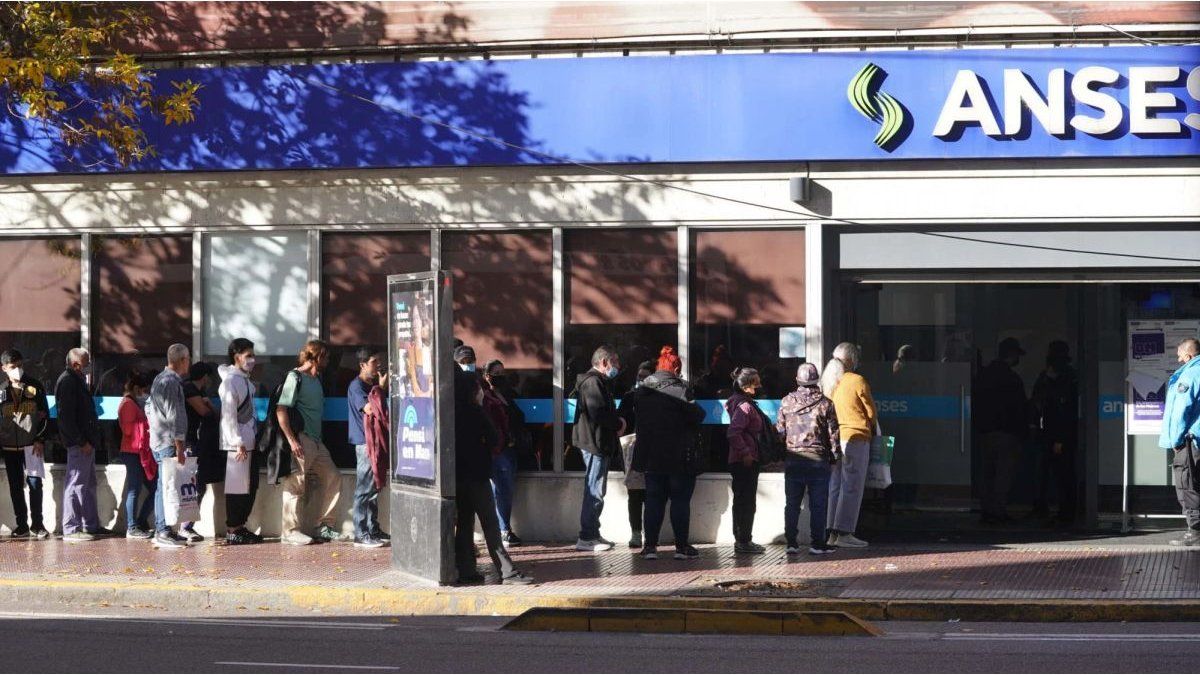The Ministry of Economy, headed by Sergio Massa, released the report from the University of Buenos Aires (UBA), which establishes that The announced exchange does not have a “direct impact on assets” and does not have a “patrimonial loss”. With the political tension cleared up, Economy is working on the fine print of the complementary resolution to the decree, while the Ansesled by Fernanda Raverta, prepares to announce a new credit system.
Currently, the Anses aims to advance with the retirement of people without contributions, after the pension payment plan was approved in Congress. Since it was launched in April and not in January, they expect some 400,000 people to access it this year, but they will try to extend office shifts and carry out territorial operations to reach some 800,000 people. Despite the claims of the IMF, which asked to focus the moratorium to reduce public spending, the Anses decided to move forward without taking the requests into account, according to Raverta in dialogue with different media.
“When the exchange between the Treasury and the Sustainability Guarantee Fund (FGS) is carried out We are going to launch a credit programWe still can’t tell you, but we’re going to announce it soon,” said the head of Anses. According to official sources, the measure will imply a liquidity of about $400,000 million, product of 30% of the proceeds from the sale of AL securities.
In an internal report that circulated in Anses, the uses of these amounts were detailed: “The operation will imply having funds that will be destined to the expansion of credits for beneficiaries of the social security system”. As Ámbito learned, although they are already putting together the new credit system, the announcement depends on the dates that Economy has.
Another of the determinations that the Palacio de Hacienda has to make is the regulation, that is, how and what the operation will consist of. It could be through a resolution of the Ministry of Finance, which depends on Eduardo Setti, with the calendars and amounts. The operation has two parts.
In the case of GD bonds with international legislation, they will be given directly to the Treasury, which will delist them, and exchange them for new debt, a dual bond under local legislation. The case is different for AL bonds with local legislation: it sells them when it deems convenient, and goes to Treasury auctions, exclusive tenders that will be made for the FGS, with dates that have yet to be defined. 70% of the pesos obtained in the market will go to dual bonds. The other 30% will remain liquid to the FGS.
In addition, the same report clarifies another use of this greater current liquidity: “Stimulus to production through the financing of productive projects and SMEs”. It is not clear in which productive projects they will invest or if they will be announced. Currently, the FGS allocates $23,664 million to productive or infrastructure projects, which is equivalent to 4.1% of the total participation of the FGS portfolio. Although this 4.1% is almost double that of two years ago (2.1% in 2020), it does not reach the 5% established by the FGS law.
The FGS does not usually make announcements about productive investments. They can be found officially published on the website. The latest official report, which is from the second quarter of 2022, indicates that two renewable energy projects were financed in that period, one from the oil and gas sector, and two thermal energy projects. Although the Economy seeks financing for the second stage of the gas pipeline, the FGS is not expected to join, according to comments from Enarsa.
Market operators assured that they will be aware of “how the FGS goes on sale”, in a context where with the increase in the parking restriction of the Globals there will be greater demand for Bonares. They clarified that the lawsuit will have to do with how the CCL operates.
Economy will advance in the exchange after the UBA report, which, when asked by Massa, answered that there will be no impact on pensions: “The operations analyzed do not correspond to any direct impact on the assets to be received by the beneficiaries of the pension agency”. In addition, he adds that the exchange “would not imply a loss of assets for the public organizations affected”, and details the asset revaluation.
In any case, from a large investment fund they assured that this report for the market is “irrelevant”, because they already expected it to come out this way, since it was done from a technical and evaluation point of view.
Source: Ambito




